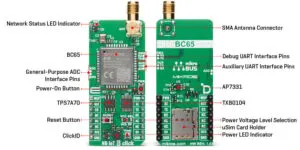
Specifically, the Personalised Tourniquet System for Spaceflight (PTSS). This will involve testing in a microgravity environment to examine rehabilitation and strength training beyond Earth.
BFR
BFR is a technique for training efficiently (lower intensity but with significant strength gains). And is particularly promising when there are physical and environmental constraints upon the use of exercise.
“BFR exercise is at the forefront of innovative technologies to optimise exercise countermeasures to protect crew health and performance during spaceflight missions where constraints upon the use of exercise are anticipated,” said Dr Luke Hughes, the lead researcher from Northumbria’s Aerospace Medicine and Rehabilitation Laboratory.
“It’s fantastic to see the success of our previous projects recognised with this award of further funding to progress our programme of research.”
UK Space Agency
Dr Paul Bate, Chief Executive of the UKSA further explained the backing of the agency:
“These new projects span the full spectrum of UK space expertise, from telecommunications, propulsion and environmental monitoring to cutting-edge technologies that could change how we develop treatments for deadly diseases using microgravity. By combining home-grown talent with global expertise, we want to strengthen our capabilities, support growth, and ensure the UK remains at the forefront of space innovation.”
Tourniquet tech
The test involves temporarily and precisely restricting blood flow to a limb using a pneumatic tourniquet cuff.
According to Northumbria, such BFR activates muscle growth and strength improvements in ways typically only triggered during higher intensity exercise. This is especially useful in physical rehabilitation and researchers have been examining how the technique can apply for space health.
Astronauts lose strength and muscle mass rapidly while on space missions because of the absence of gravity. This means BFR could provide a method to preserve musculoskeletal health with minimal equipment and time commitment.
Fram2
The device had been adapted and made space ready by Dr Hughes and his team at Northumbria. It uses equipment from Delfi Medical Innovations, a specialist in automatic tourniquet technology.
The SpaceX Fram2 mission, which launched on 1 April this year, carried Northumbria’s PTSS BFR exercise device. It was part of a research initiative studying countermeasures to protect crew health and performance in space.
Image: SpaceX – The Fram2 space rocket before launch
See also: Northumbria University builds and tests first ALIGN CubeSats






